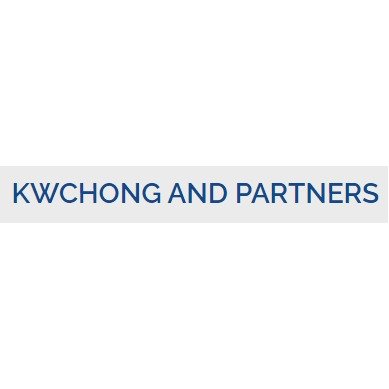Best Structured Finance Lawyers in Ipoh
Share your needs with us, get contacted by law firms.
Free. Takes 2 min.
List of the best lawyers in Ipoh, Malaysia
About Structured Finance Law in Ipoh, Malaysia
Structured Finance in Ipoh, Malaysia, refers to a specialized area of finance law that involves complex financial instruments and transactions designed to help companies access capital and manage financial risk. This area typically includes securitizations, project financings, asset-backed securities, syndicated loans, and other techniques that go beyond conventional lending and borrowing. In Ipoh, Structured Finance transactions mostly relate to property development, business expansion, and refinancing, often involving intricate regulatory and contractual considerations under Malaysian law.
Why You May Need a Lawyer
Engaging in Structured Finance transactions carries significant legal obligations and complexities. A lawyer with experience in Structured Finance can help you understand transaction structures, manage risk, and ensure compliance with local regulations. Common situations where you may require legal assistance include:
- Structuring a syndicated or large-scale loan for business expansion
- Participating in securitization of assets for liquidity generation
- Negotiating and drafting complex loan and security documentation
- Dealing with cross-border financings involving international parties
- Ensuring adherence to regulatory requirements from Bank Negara Malaysia and the Securities Commission Malaysia
- Managing disputes or defaults in Structured Finance agreements
Local Laws Overview
Structured Finance transactions in Ipoh are subject to multiple layers of regulation, combining local laws and guidelines issued by national authorities. Key aspects include:
- The Financial Services Act 2013 and Islamic Financial Services Act 2013, which govern most banking activities in Malaysia
- Central Bank regulations, including those issued by Bank Negara Malaysia, covering lending limits and prudential standards
- The Companies Act 2016, which outlines requirements for corporate entities involved in finance transactions
- Securities Commission Malaysia guidelines, especially for securitization and sale of finance securities
- Stamp Duty Act 1949 and Real Property Gains Tax Act 1976, for tax implications of finance transactions
- Contract and tort law principles governed by the Contracts Act 1950 and Civil Law Act 1956
Additionally, Islamic finance transactions, which are common in Malaysia, must comply with Shariah principles as interpreted by relevant authorities.
Frequently Asked Questions
What is Structured Finance and how is it different from traditional financing?
Structured Finance involves complex and tailored financial arrangements, such as securitizations and pooled loans, as opposed to straightforward loans or credit facilities typically offered by banks.
What types of entities in Ipoh commonly use Structured Finance?
Property developers, large corporations, government-linked companies, and sometimes public-private partnerships are frequent users of Structured Finance techniques in Ipoh.
Are there special regulations for Structured Finance in Ipoh?
Yes, transactions are regulated by central Malaysian laws and guidelines from agencies such as Bank Negara Malaysia and the Securities Commission, which set rules on disclosure, capital adequacy, and investor protection.
Can foreign entities participate in Structured Finance transactions in Ipoh?
Yes, but they must comply with exchange control guidelines, foreign investment rules, and possibly obtain approvals from relevant authorities.
Is it necessary to have legal assistance for Structured Finance deals?
Given the complexity and risks, it is highly advisable to consult a lawyer experienced in Structured Finance to structure, draft, and review all legal documentation.
How is Islamic Structured Finance handled in Malaysia?
Islamic Structured Finance must adhere to Shariah principles. Malaysia has established frameworks and authorities to oversee compliance and certification for Islamic financial products.
What is securitization and is it used in Ipoh?
Securitization involves pooling various financial assets and selling them in the form of securities to investors. It is used in Malaysia, including in Ipoh, particularly for property and infrastructure projects.
What happens if a Structured Finance deal fails or there is a dispute?
Parties must follow dispute resolution mechanisms set out in the documentation, which may involve arbitration, mediation, or litigation in Malaysian courts.
What are the typical fees and costs involved?
Costs depend on transaction type, asset size, and legal complexity, and include legal fees, due diligence costs, registration and stamp duties, and potentially regulatory filing fees.
Where can I get more information if I am considering entering into a Structured Finance transaction?
You can consult legal professionals in Ipoh, contact regulatory authorities, or refer to resources mentioned below for further guidance.
Additional Resources
If you need more information or wish to do preliminary research, the following organizations and resources will be helpful:
- Bank Negara Malaysia: Central bank that issues regulations for financial institutions and activities
- Securities Commission Malaysia: Regulator for securities, including asset-backed instruments and securitization
- Companies Commission of Malaysia (SSM): Handles corporate registration and compliance matters
- Malaysian Bar Council and Perak Bar Committee: For finding qualified local lawyers in Ipoh
- Association of Banks in Malaysia: Helpful for understanding banking practices and guidelines relevant to Structured Finance
- Local legal clinics or professional advisor networks for preliminary consultations
Next Steps
If you are considering a Structured Finance transaction in Ipoh or require legal advice:
- Gather all relevant financial and corporate documents related to your proposed transaction
- Identify your objectives and the type of Structured Finance arrangement that may suit your needs
- Consult with an experienced lawyer or law firm specializing in Structured Finance in Malaysia
- Request an initial consultation to understand legal fees, timeframes, and potential risks
- Ensure all parties involved are aware of regulatory obligations and their rights under Malaysian law
Legal guidance is crucial to successfully structuring, negotiating, and executing transactions while safeguarding your interests and ensuring compliance with all regulatory requirements in Malaysia.
Lawzana helps you find the best lawyers and law firms in Ipoh through a curated and pre-screened list of qualified legal professionals. Our platform offers rankings and detailed profiles of attorneys and law firms, allowing you to compare based on practice areas, including Structured Finance, experience, and client feedback.
Each profile includes a description of the firm's areas of practice, client reviews, team members and partners, year of establishment, spoken languages, office locations, contact information, social media presence, and any published articles or resources. Most firms on our platform speak English and are experienced in both local and international legal matters.
Get a quote from top-rated law firms in Ipoh, Malaysia — quickly, securely, and without unnecessary hassle.
Disclaimer:
The information provided on this page is for general informational purposes only and does not constitute legal advice. While we strive to ensure the accuracy and relevance of the content, legal information may change over time, and interpretations of the law can vary. You should always consult with a qualified legal professional for advice specific to your situation.
We disclaim all liability for actions taken or not taken based on the content of this page. If you believe any information is incorrect or outdated, please contact us, and we will review and update it where appropriate.














